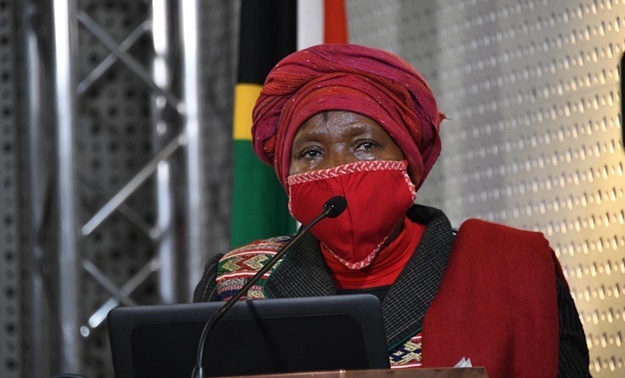[ad_1]

As of 1 May, a national curfew from 20:00 to 05:00 will be in place and it will be applicable to everyone except essential workers traveling to and from work.
The country is expected to move from a Level 5 to a Level 4 lockdown, allowing limited economic activity but keeping most existing measures in place.
On Saturday, Minister of Cooperative Governance and Traditional Affairs Nkosazana Dlamini-Zuma and Minister of Trade and Industry Ebrahim Patel addressed the media on the Level 4 lockdown.
While restaurants will be closed for sit-down meals when the country moves to Level 4 next Friday, the movement of takeaway food will be allowed.
Until now, restaurants and takeaway food outlets have been closed. But Patel said on Saturday that they will be open for takeaways only. Takeaway deliveries can only occur from 09:00 to 20:00.
Limiting movement
Patel said it was important that customers did not go to the shop or restaurant, but that the food be transported to customers. He said this was a better way of limiting the movement of people, according to international experience.
While regulations regarding the details of the Level 4 rules will be published next Thursday, Dlamini-Zuma and Patel announced the broad outlines.
The wearing of cloth face masks will be mandatory under Level 4. Hygiene and social distancing will remain of critical importance and there will be screening for Covid-19 symptoms in workplaces that reopen.
Lotto tickets are still not allowed to be sold and visiting of any kind and all social gatherings, including religious gatherings, are still banned.
The following wholesale and retail sectors will be open under restricted circumstances:
– food
– hygiene
– protective and baby care
– stationery
– medical supplies
– fuel, coal, wood, gas and tobacco
– hardware supplies for qualified tradespersons and emergency repairs for homes and essential services
– vehicle components for essential workers
– chemicals, packaging and supply of level 4 products
Winter clothing and bedding, as well as heating products, will be available for purchase.
Cargo for domestic and neighbouring countries and the transport of essential goods, as well as e-hailing and limited public transport will be allowed. This is subject to the current limitations on the number of passengers that can travel.
Emergency repair work will be allowed, including plumbers, electricians, glaziers and roof repairs and locksmiths.
The agriculture, forestry and fishing industries will also now be able to operate, including livestock and agriculture exports, essential harvesting and storage activities, essential fishing operations, flori-culture and forestry.
Critical civil engineering and construction for public works projects will be allowed, as well as critical maintenance and repairs.
Live-in staff and support for Level 4 personnel be allowed to go to work. However, staff will not be allowed to travel to and from their places of work over weekends.
Essential staff
Trade union essential staff, all social workers and caregivers, veterinary and medical service employees will be allowed to work.
Funeral and cremation services and wildlife management will also be operational, as well as sanitation, pest control, sewerage and refuse removal.
Fifty percent of recycling operations, including informal traders, will be allowed to return to work.


















